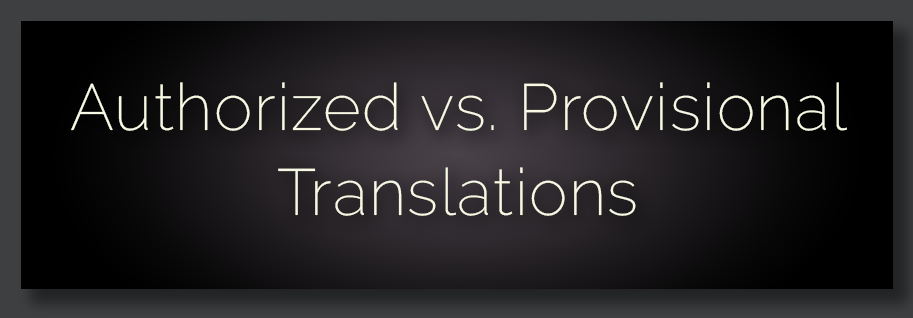
In Baháʼí parlance, “provisional translations” refer to renderings of the Writings that have been produced by one or more translators (Baháʼí or not) in a personal capacity. These stand in contrast to “authorized translations,” which have undergone a rigorous vetting and editing process facilitated by the Universal House of Justice—the international governing body of the Baháʼí Faith—who then approves these translations for publication in Baháʼí texts.
According to guidance from the Universal House of Justice:
Individual believers [Baháʼís] are free to translate into English any of the Holy Writings for their own use. Such translations may also be issued electronically, and may be published in circulars or journals without review by anyone other than the editors of the publications, but they must, in all cases, be clearly labeled as “provisional translations.”
« Policies Governing Authorized and Provisional Translaitons of the Bahá’í Holy writings into English and their Publication » (4 July 1999)
(Here is the link to the source for the quotation above.)
However, provisional translations have generally not been subjected to careful peer review and are much more susceptible to change than authorized translations. Hence, in keeping with the unifying purpose of standardization, the scope of The Utterance Project is limited to those Writings which do have authorized translations into English.
For those who may be interested, provisional renderings of many Baháʼí Writings that do not yet have authorized translations into English can be found at the following websites: